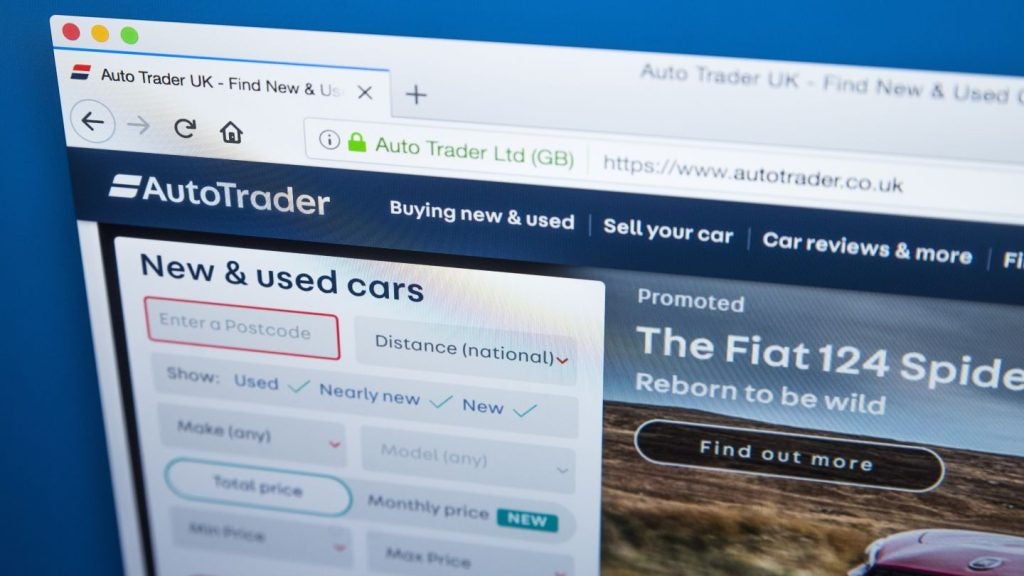Fred Crawley looks
into the facts and figures revealed by new data from Plimsoll
looking at the financial performance of leasing
companies.
A new report by UK market information provider Plimsoll has
determined that the British fleet leasing sector is returning to
health, despite the vast majority of companies having been weakened
by the last two years
According to the report, The UK Leasing Services
Industry, some 192 out of 444 companies surveyed – 43 percent –
have seen a “fall in their overall financial strength” (see The
bigger they are…, opposite page) in their last reporting
period.
(Editor’s note: The report covers companies which
lease all types of equipment, not just vehicles, but includes all
major fleet providers.)
Despite this, overall sales growth was recorded for
the leasing industry, after two years of flat, and then negative
growth.
But there have been losers as well as winners in
the early stages of recovery, and the vehicle leasing sector has
had a particularly challenging time.

US Tariffs are shifting - will you react or anticipate?
Don’t let policy changes catch you off guard. Stay proactive with real-time data and expert analysis.
By GlobalDataThe survey showed that fleet and motor
finance providers had in many cases seen better sales growth than
general asset finance providers over the last year, but had
suffered from high levels of formal debt and lower financial
strength.

Sacrifice for sales
Toyota Financial Services (TFS), for example,
achieved an astonishing on-paper sales growth of nearly 300 percent
over its last reporting period to reach a figure of £242 million,
dwarfing the industry growth average of 1.7 percent.
However, TFS suffered formal debt equivalent to
1,026 percent of total sales in 2009, and posted an annual loss of
£23.5 million.
On the whole, TFS’s results support a picture of a
company sacrificing short term financial health for rapid sales
growth, with figures for sales per employee and mean salary
considerably above the national average.
This is reflected by TFS’s performance in
Plimsoll’s ranking of lessors by market share, being the only
company in the top ten to have exceeded a sales growth rate of 11
percent.
We happy few
Another rapid grower was Tuskerdirect,
the fleet provider owned by private equity firm Smedvig Capital.
Although much smaller than TFS with sales of just £21.2 million
over the reporting period, Tusker-
direct posted a sales growth of 304 percent.
Tuskerdirect also was one of only four motor
finance companies to be named among Plimsoll’s top 22 trading
partners in UK leasing – a list taking into account both sales
growth and ‘Financial strength’, an index aggregating five factors:
trading stability, profitability, working capital, gearing, and
immediate liquidity (see The Plimsoll model, opposite page).
Tusker far outstripped the rest of the list in
terms of sales growth, being the only lessor to achieve a three
figure increase, and compared very favourably with its peers in
terms of gearing, working capital and trading stability.
The other three automotive financiers to make it
onto Plimsoll’s top 22 lessors were BMW Leasing (a unit of BMW
Financial Services), Porsche Financial Services, and Motiva Vehicle
Contracts, all of which achieved sales in between £30 million and
£41 million, and sales growth in the low double digits.
Sales growth
Historically, turnover for all types of
leasing company has grown by an average of 28.3 percent over the
past decade.
However, while large lessors, with annual turnovers
of more than £21.4 million, grew their sales each year during this
period, small lessors, with a turnover of £0.7 million or less,
have seen overall sales contraction over the last eight years (see
chart below).
The marked decline for small leasing companies
began four years ago, and reached a peak during their latest
financial year when their average turnover dropped by 32
percent.
Despite the recession, though, average sales growth
across the industry for the last reporting period stood at 1.4
percent, and a number of companies continued to flourish.
Whereas almost half of companies surveyed recorded
a fall in sales over the last year (with an average fall of 36
percent), more than 50 percent recorded an increase, with an
average of 17 percent.
Again, the dividing factor was size – whereas the
upper quartile of companies by turnover (£21.4 million per year and
above) reported a median annual growth of 9.5 percent, the lowest
quartile (below 0.7 million in growth) appear to have declined by a
median of 32.6 percent.
Profit margins
Currently, the average gross profit
margin across the industry stands at 34 percent of total sales in
the last reporting period. Nevertheless, some 39 percent of
companies recorded a gross profit margin of more than 50
percent.
This has been an area of success for small leasing
companies – whereas average gross profit margin for the upper
quartile was 24.6 percent in the last reporting period, that figure
was 48.4 for smaller leasing firms.
Nevertheless, the smaller lessors are losing their
lead – 10 years ago, their median figure was 96 percent, compared
to just 21.5 percent for the upper quartile.

The gap has closed steadily over the last
decade.
In terms of pretax profit margin, however, smaller
leasing companies are enjoying a lead that remains healthy.
Over the last reporting period, the lower quartile
reported a median pretax margin of 48.6 percent compared to just
2.6 percent for larger firms.
This compares to respective figures of 22.1 percent
and 3.8 percent for smaller and larger firms ten years ago.
But it is worth remembering that many lessors with
the highest gross and pre-tax profit margins are small subsidiaries
of much larger companies.
Overall in the latest reported figures, 27 percent
of leasing companies reported a pretax loss, with the rest of the
industry enjoying an average pre-tax margin of 19.7 percent – up
from 7 percent a year earlier.
The Plimsoll model
Plimsoll’s rating system was
developed by management accountant John Robertson, and takes into
account both the commercial strength (based on sales growth) and
financial strength of a company.
‘Financial strength’ is an index
derived from an aggregate of five factors: Trading stability,
Profitability, Working capital, Gearing, and
Immediate liquidity.
These are worked out as detailed
right.
• Trading stability = Sales − Total
assets / Sales
• Profitability = Profit before tax
× 100 / Total assets
• Working capital = Total current
assets − Total debt / Total current liabilities
• Gearing = Shareholder funds −
Total loan capital − Short-term borrowing + Cash / Total debt
• Immediate liquidity = Total
current assets − Stocks − Short-term borrowing / Creditors
The bigger they
are…
Plimsoll’s figures on the
UK’s biggest fleet providers
Lex Autolease – 338,000
vehicles
Unfortunately, at the time of going
to press, no data was available from Plimsoll reflecting the
overall shape of Lex Autolease’s business. Whereas information was
available for its former entity Lex Vehicle Leasing, the figures
given did not seem to represent Lex’s overall size. Lex is, in any
case, a somewhat different animal to other fleet companies, with a
fleet book as large as its four nearest competitors combined.
LeasePlan – 130,000
vehicles
Inula Holding UK, the holding company
behind Dutch LeasePlan’s UK operations, filed total sales figures
amounting to nearly £476 million in its latest report, an increase
of just 1.6 percent year-on-year, but enough to rank it second in
Plimsoll’s list of industry sales totals. Average sales for the
company’s 565 employees stood at £842,000, nearly double the
industry norm, while formal debt stood at 245 percent of total
sales, contributing to what Plimsoll called ‘low’ financial
strength. Inula made a £24.6 million loss in its last year of
trading.
Lombard Vehicle Management – 90,000
vehicles
Lombard Vehicle Management (LVM)
reported total sales of £79 million in its last set of results, up
by 11.4 percent year-on-year, but still conspicuously lower than
LeasePlan’s – this may be as a result of LVM’s status as a
subsidiary of Lombard North Central. In any case, LVM’s financial
strength was rated ‘low’ by Plimsoll, with formal debt representing
386 percent of total sales, and the year generating a £23.6 million
loss. Low pre-tax profits were also highlighted as an area of
concern for the lessor, which employs 403 staff.
Arval – 73,000 vehicles
Arval, owned by French BNP Paribas,
was rated ‘satisfactory’ in its financial strength, seeing formal
debt fall 58 percent year-on-year, sales up 19.6 percent, and
pre-tax profit rising to reach £19.4 million, taking fifth place in
Plimsoll’s industry ran kings. Interest payments of £36.7 million
were listed as an impediment to profitability in the last year.
Daimler Fleet Management – 54,000
vehicles
Daimler Fleet Management saw sales up
22 percent year-on-year, to reach a figure of nearly £70 million.
Its gross profit margin of 27.3 percent was highlighted as well
above average. Its overall financial strength was rated ‘low’,
however, due to a formal debt representing 334 percent of total
sales and a pretax loss of £5.7 million







